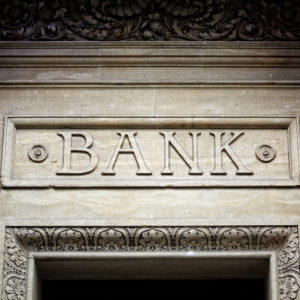From persistent inflation, soaring national debt, rising mortgage rates and demands to fund foreign wars, money struggles have become an everything, everywhere, all-at-once crisis in America.
These fiscal problems should demand the federal government’s entire focus and concentrated effort. Yet, recent revelations on Capitol Hill show the Treasury Department is taking time away from solving America’s most significant challenges to flag, monitor and categorize the purchases of everyday Americans — particularly their political enemies.
The House Select Subcommittee on the Weaponization of the Federal Government found that the federal government instructed financial institutions to use search terms like “MAGA” and “TRUMP” to single out account holders. That’s right. The administration is not focused on inflation and middle-class homeownership. Instead, it is weaponizing the banking industry against citizens — and it’s a threat to Americans’ First and Second Amendment rights.
What’s worse, large financial institutions seem more than willing to comply. The administration and the banks are sifting through credit and debit card transactions to identify political enemies.
The chairman of the House Judiciary Committee, Jim Jordan of Ohio, pointed out that training materials were sent from the federal government to banks, instructing them to search for keywords like “Cabela’s” and “Dick’s Sporting Goods,” and even for phrases like “Small Arms” and “Sporting and Recreational Goods and Supplies.” To the federal government, purchases from these outlets, “small arms” purchases, and even the purchase of “religious texts and subscriptions to media containing extremist views” are all considered “extremism indicators.”
Despite how alarming it is that the federal government would mobilize private banks to attack its citizens, it is only a fraction of the issue — banks have already been using financial power and government protection to impose a radical agenda.
Whistleblowers have long documented how the White House has mobilized the FBI to investigate Catholics and parents critical of school boards. However, forcing Americans to adopt leftist thought and behavior is not limited to the force of the federal government from a few bureaucrats. These recent findings signify an embedded culture between government and banks to change the political landscape of America, not at the ballot box, but through citizens’ bank accounts.
Large banks have denied individuals access to financial services simply because they hold political and religious views that run contrary to Wall Street and Pennsylvania Avenue — a practice that’s become known as “debanking.”
The National Committee for Religious Freedom (NCRF), a religious freedom non-profit, had its JPMorgan Chase checking account closed in 2021. The bank said it might reinstate the account if NCRF disclosed a list of donors who contributed to 10 percent or more of its operating budget and divulged the criteria they use to decide whom to support politically. Respecting their donors’ First Amendment right to privacy, NCRF declined. JPMorgan Chase explained they had to ask these questions to comply with federal banking guidelines to prevent money laundering and terrorism. Banks are not legally required to do this screening, and non-profits historically present a low risk for these guidelines.
Indigenous Advance Ministries (IAM) is another non-profit that supports orphans, helps Christian families, and provides vocational training to young adults in Uganda. IAM has held its accounts with Bank of America since 2015. In 2023, Bank of America informed IAM that their accounts would be closed, again with no initial explanation. Bank of America said in a follow-up, “Upon review of your account(s), we have determined you’re operating a business type we have chosen not to service at Bank of America.” The bank added that IAM “no longer aligns with the bank’s risk tolerance.”
There is a clear shift from neutrality to activism among megabanks, with coaching and cheerleading from the federal government. Redirecting private capital to exclusively support progressive causes is not new. In recent years, the environmental, social, and governance movement gained traction as a cause to boycott the fossil fuel industry, which had disastrous effects on the U.S. energy sector.
This is a new step in the ESG movement: If energy boycotts were the “E” component of ESG, then politicized debanking represents the “S,” or social, aspect of the agenda.
At its core, politicized debanking is clear discrimination. Historically, Americans suffer when the federal government partners with banks to pick winners and losers in the market. Debanking policies promote religious and political discrimination in how Americans access everyday financial services. Until principled lawmakers put a stop to this practice, Americans’ innate rights to speak and worship will continue to erode.


